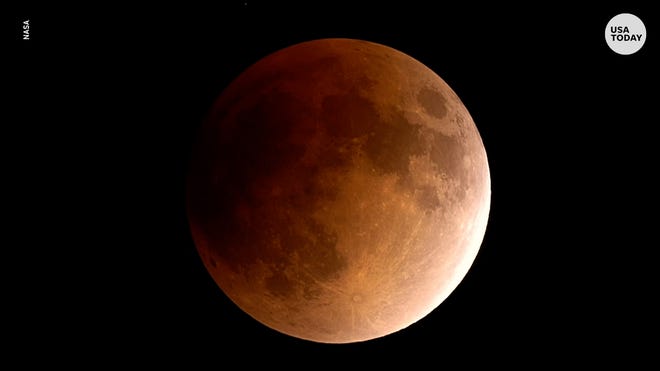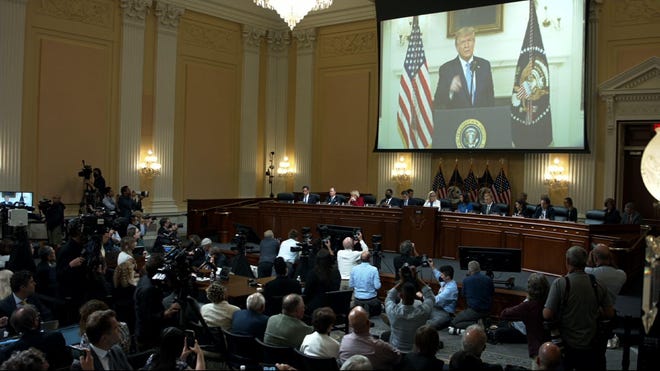Royal. Legendary. A queen.
Those are the adjectives often invoked at the mention of Cicely Tyson's name. The actress and cherished icon, who was first Oscar-nominated for 1972's "Sounder" and 45 years later was honored with an honorary golden statuette for her body of work, died Thursday at age 96, her manager Larry Thompson confirms to USA TODAY.
"With heavy heart, the family of Miss Cicely Tyson announces her peaceful transition this afternoon. At this time, please allow the family their privacy," Thompson said in a statement.
Tyson's death comes the same week her memoir, "Just As I Am," was released.
"I have managed Miss Tyson's career for over 40 years, and each year was a privilege and blessing," Thompson's statement read. "Cicely thought of her new memoir as a Christmas tree decorated with all the ornaments of her personal and professional life. Today she placed the last ornament, a Star, on top of the tree."

Through Tyson, Black women were represented roundly and robustly over seven decades on screens big and small. She trailblazed roles portraying the lives of women ranging from fictional slave-turned-activist Jane Pittman and educator Marva Collins to activist Coretta Scott King and abolitionist Harriet Tubman.
Still, it's difficult to convey just how deeply the actress permeated American culture through the decades. Tyson helped bring "Roots" to life in 1977 as Binta, Kunta Kinte’s mother; she stole the show in 1991's "Fried Green Tomatoes," gave weight to 2011's "The Help" and grounded modern TV series such as "House of Cards" and "How to Get Away With Murder."
The actress won three Emmys and a Tony Award, and was awarded a Kennedy Center honor in 2015. “African Americans hold Cicely in such high regard, she is a queen to us," said Tyler Perry in 2018. "She would only do roles that served us.”
The actress was born in Harlem in 1924 to a carpenter father and a domestic worker mother, both of whom immigrated from the West Indies. After finishing high school she began as a secretary for the American Red Cross before deciding to try and become a model. By the late 1950s, Tyson was flourishing in the industry, covering magazines like "Essence" and "Jet."
She notoriously went against her mother's advice when she decided to become an actress. Tyson was kicked out of her mother's home and the two didn't speak for two years. (It was "Sounder" and "Jane Pittman" that earned her mother's first praise.)
Tyson began on stage in New York, eventually working her way into television by way of small roles on shows like "I Spy," "Naked City," "The Bill Cosby Show" and "Nurses." Her film career was a slower burn, as Tyson actively avoided "blaxploitation" films popular in the late '60s and early '70s.
As her opportunities grew, so did her insistence on staying true to the women she portrayed. Tyson was adamant that she wear her hair natural and based on the role she was playing, launching a natural hair craze. After sporting short hair as secretary Jane Foster in "East Side/West Side," "I got letters from hairdressers all over the country telling me I was affecting their business because their clients were having their hair cut off so they could wear it 'like the girl on television,' " she told Oprah Winfrey.
Then came "Sounder." The film dealt with the economic and personal strain shouldered by Black sharecroppers in Depression-era Louisiana. Playing the family's complicated matriarch Rebecca Morgan (who appeared in cornrows, at the actress' insistence), Tyson's performance garnered her an Oscar nomination for best actress, though the prize went to Liza Minnelli for "Cabaret."
Two years later, Tyson made history as the first Black woman to win a best lead actress Emmy for "Jane Pittman," one of the first television projects to depict the fraught reality of the African American experience in the Deep South during the transition out of enslavement. Tyson was ultimately nominated for 16 Emmys, winning a third Emmy for her supporting role in the 1984 miniseries "Oldest Living Confederate Widow Tells All."
She remained one of the most prolific actresses of the last century, working steadily throughout her 80s and 90s. In 2013, after three decades away from the stage, Tyson starred in the Broadway production of "The Trip to Bountiful," a project based on a 1953 Horton Foote play about a homesick, elderly woman itching to return to her rural Texas hometown.
Tyson had seen the original 1985 "Bountiful" film, which starred Geraldine Page, in a theater. "I went straight to my agent's office and I said to him, 'You get me my 'Trip to Bountiful' and I will retire,' the actress recalled in an episode of Oprah's Master Class. "I said, 'I just want one more great role, and then I'm finished. I won't be greedy, I'll just step out of the picture.' He look at me and he chuckled."
Almost a quarter-century later, Foote's daughter approached Tyson about adapting the film for Broadway with an all-Black cast.
The film adaptation of "Bountiful" earned Page an Oscar in 1986, and 26 years later, the project spawned similar magic for Tyson, who took home her first Tony Award at age 88 for the play. Her performance captivated; audiences were known to sing along with the actress when, mid-play, she launched into the hymn, "Blessed Assurance." A year later, Tyson would resume her lead role in the TV film adaption for Lifetime (which she executive produced).
In 2015, she returned to Broadway in "The Gin Game" opposite James Earl Jones.
Over the years, Tyson left an indelible impression in films including "The River Niger," "Bustin' Loose," "Because of Winn-Dixie," "The Heart is a Lonely Hunter," "Diary of a Mad Black Woman" and Tyler Perry's "Madea" films. In 2018, at age 93, she was still going strong filming episodes of "How to Get Away with Murder" as Viola Davis' mother.
For Davis as a child, watching Tyson on her TV screen in "Jane Pittman" "changed my life." "To see someone who resembled me achieving great things ... Miss Tyson gave me permission to dream," she said, while toasting Tyson at the Kennedy Center honors.
But Tyson kept her more intimate details close to the vest, rarely discussing her love life, including her relationship with jazz legend Miles Davis. The two began dating in 1966 (Tyson appeared on the cover of Davis' 1967 album, "Sorcerer") and were married for seven years, from 1981 to 1988.
Tyson, who is often credited with helping the trumpeter recover from alcohol addiction, called theirs a "tumultuous" relationship. "You have two people who are so enriched, blessed by incredible talents. I thought he was. He thought I was. And what it takes to live from day to day with that," she told CNN's Don Lemon in 2013. "There are so many facets to a dual life that is completely alien to most people. There have been some of the most incredible moments in my life afforded me through him."
Was he the love of her life? "That's none of your business!" she laughed. But according to Kerry Washington at the Kennedy Center honors, every year on Davis' birthday, she would journey to a jazz club to hear a rendition of "My Funny Valentine."
Tyson was a longtime patron of the arts, and in 2016, President Obama awarded her with the Presidential Medal of Freedom, recalling how the actress famously declared she "would not accept roles unless they projected us, particularly women, in a realistic light and dealt with us as human beings.”
Obama added: "Cicely’s convictions and grace have helped for us to see the dignity of every single beautiful memory of the American family.”
Receiving her honorary Oscar in 2018 in Los Angeles, an emotional Tyson brought the house down while brandishing the golden statue on stage. “Mom, I know you didn’t want me to do this,” she said, “but I did and here it is.”
In the final pages of her memoir, released just days before her death, Tyson reflected on how she hoped to be remembered.
“Here in my twilight years, as my Christmas tree towers and glistens, folks are always asking me what legacy I want to leave – what roots beneath my soil I most hope will outlive me. I want to go home knowing that I loved generously, even if imperfectly. I want to feel as if I embodied our humanity so fully that it made us laugh and weep, that it reminded us of our shared frailties.
"I want to be recalled as one who squared my shoulders in the service of Black women, as one who made us walk taller and envision greater for ourselves. I want to know that I did the very best that I could with what God gave me – just as I am.”
Source link











